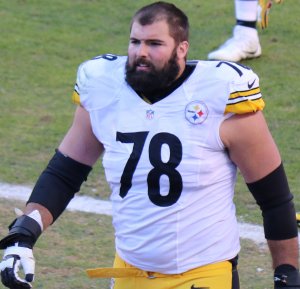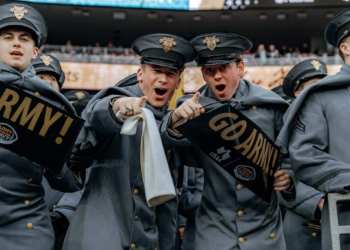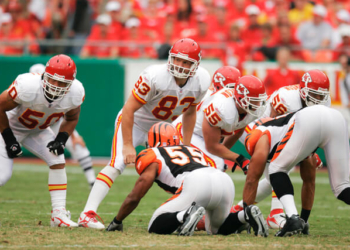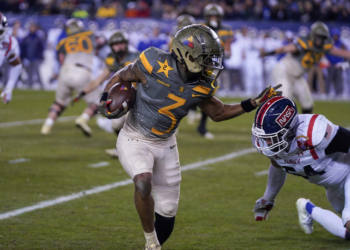When a legendary football coach is retired and enjoying time with his wife, grandchildren and 3-acre sanctuary in a quaint Virginia town, you would imagine he aims to stay put. The professional career in the books, the business shut down. But sometimes, reasons beyond one’s desires pull you back in.
Coach Bobby Ross, whose resume is saturated with success at both the college and NFL levels of football, was on a permanent vacation in 2003. But Rick Greenspan, the athletic director at Army, would soon toss a wrench, er, football, into Ross’ routine, upsetting the equilibrium of retired life.
Greenspan asked Ross if he’d be interested in becoming part of a hiring committee for a new head football coach. Ross was interested but never heard back. So, he followed up. However, he wasn’t prepared for the response. Would he be interested in the top football job at the service academy?
READ: Army, Navy gear up for another round of ‘America’s game’
“I couldn’t believe it. I was just shocked by it,” said Ross.
But the former Super Bowl coach was dug into retirement. The military was entrenched in the Iraq War, and recruiting would be difficult. And the Black Knights were mired in a massive losing streak. His wife asked him what he thought. He said, “No way, no way.”
Then his wife looked at him sternly and said, “It’s your patriotic duty to take that job.” Ross was taken aback by her declaration but felt she was right. He found himself at West Point in 2004.
Military ties teach respect
The military has always been important to Ross — in his blood, so to speak. The connections were always there, or never far away.
Upon his arrival at Virginia Military Institute for college in 1956, Ross soon found camaraderie within the football program. It was like the school’s stand-in fraternity.
“So, you become real close and very much a part of the football team and its leadership,” he said. “We had some good teams.”
VMI enjoyed an 18-game winning streak while Ross played there, earning the Keydets a national ranking. According to the Virginia Sports Hall of Fame, the undefeated team of 1957 earned a final ranking of 20 in the AP poll. It was the only VMI football team to be nationally ranked. Ross played quarterback and defensive back.
Nearing his graduation from VMI, Ross was uncertain of what he wanted to do — he knew a stop in the Army was part of the plan, but after that, anything was possible. Then his former high school contacted him about becoming the head coach there.
“I got that job. Coached there for six months, went into the Army for two years,” Ross explained.
Ross was stationed in Germany during the construction of the Berlin Wall.
“It was pretty scary at the time, but it all subsided, and we did not end up having to do any fighting, though we were certainly well prepared for it, I can tell you that,” said Ross, who was a first lieutenant and executive officer to the company. “It left me with a lot of respect for the people who served.”
His next engagement with the military wouldn’t occur — albeit, a short stop at VMI in 1965 — until 1973. Ross was named head football coach at The Citadel that year.
He cherished his time at The Citadel, living on campus with his family, affording him greater access to his players. “They were a wonderful group of kids.”
Coaching at The Citadel meant Ross would be facing his alma mater once a season.
“It was intense,” he said. “I wanted to win badly … I simply wanted to win the game because it was our chief rival … at that time VMI was a pretty good program.”
Seasons of success
That would be his last courtship with the military until West Point in 2004. During the interim, Ross experienced his greatest successes as a coach.
He led the program at Maryland for five seasons, amassing a record of 39-19 and coaching two NFL quarterbacks — Boomer Esiason and Frank Reich, the current head coach of the Indianapolis Colts.
Reich brought the Terrapins back against a Jimmy Johnson-coached Miami team after being down 31-0 at halftime.
“And we were able to come back and win the game, 42-40,” Ross said.
Maryland was followed by a National Championship stop at Georgia Tech and a Super Bowl XXIX appearance against the 49ers when he coached the San Diego Chargers.
He concluded with the Detroit Lions when the NFL implemented the salary cap. Ross inherited Hall of Famer Barry Sanders and top receiver Herman Moore but felt too much cap money had been spent on the offensive side of the ball when the defense needed bolstering. Sanders then retired the day before the start of training camp. His tenure with the Lions ended in 2000.
West Point (post “retirement”) was a goal fulfilled for Ross. Though he once dreamed of walking the campus as a plebe and yuk, the opportunity to roam the sidelines as the general of the football program perhaps made up for it.

Ross faced challenging opponents during his time with the Black Knights — Notre Dame, Texas A&M and Iowa State — and his team ended a dubious Army losing streak.
“We played competitively, but our wins were not as many as I would have liked.”
He left West Point after the 2006 season, which was part of his game plan all along.
“I thought I’d give it about three years, and that’s what I did,” he said. “It was a great experience. You talk about dedicated people … these guys are going to the military. For certain.”
One of Ross’ quarterbacks at Army — Chase Prasnicki — was killed while serving in Afghanistan.
Ross’ final recruit was Baltimore Ravens’ tackle Alejandro Villanueva, who served three tours in Afghanistan before playing in the NFL, Ross said.
“I have great, great, great respect for the military,” Ross said. “I do. They’re tremendous people. They make great sacrifices.”
Read comments







































